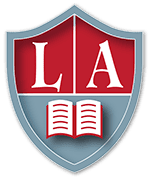We are focused on collecting the right data, in the right sequence, and on the right cycles to most inform teaching an student learning. Students engage in weekly EETS to demonstrate comprehension and mastered skills during class and to inform teacher re-teaching and progress through curriculum. Robust data driven cycles with quarterly Interim Assessments in partnership with Achievement Network (A-Net) and Fountas & Pinnell (F&P) Testing to test mid-year growth with standards aligned data allowing for stronger remediation planning - specifically for targeted subgroups - and more predictive data on student MCAS performance. Likewise, we are able to compare our results with other schools in the network to help us understand our students’ performance in similar programs.
In addition, students complete Unit Assessments at the end of a unit (approximately 4-6 weeks long) to highlight student mastery and identify preparation to move to the next unit. Students are assessed in all core subjects on a weekly basis to determine their level of weekly mastered skills and identify where intervention and enrichment opportunities are most needed. Extended instructional time built into the school day provided additional learning opportunities for students. Daily planning periods, weekly professional development sessions, and quarterly “Data Days” are the cornerstone of this design element.
